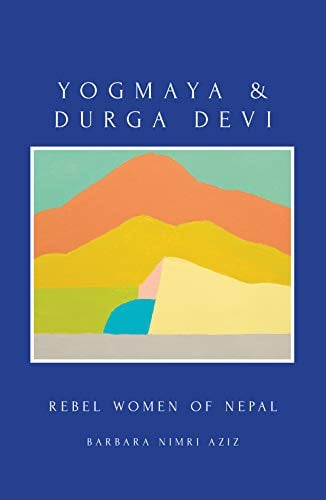A Reality Check on Our Polarized Lives. From My Radiology Exam

All Global Research articles can be read in 51 languages by activating the Translate Website button below the author’s name.
To receive Global Research’s Daily Newsletter (selected articles), click here.
Click the share button above to email/forward this article to your friends and colleagues. Follow us on Instagram and Twitter and subscribe to our Telegram Channel. Feel free to repost and share widely Global Research articles.
***
Arriving for my bone density test at a downstate New York hospital, I’m delighted to again find Belinda in Radiology. When she does my annual mammogram, I learn more than about cancer. Although she readily shares her own breast cancer experience as she prepares her half-million-dollar machine. How she delights in describing its new features.
Our conversation begins with my observation about heightened security at the hospital. “More guards at the main door?” I note. “Yes, more protocols. Now they’re armed!”, she adds.
The bone scanning machine is a sleek new model: silent too; our chat can proceed uninterrupted. “Registration took unusually long today; are there staff shortages here too?” I ask, stepping onto the table. “Don’t get me started”, replies Belinda. “Lots of money some places – not where it’s needed. Nurses work just to pay off student debt.”
How this led to China, I’m unsure; maybe something about growing public anxiety. The radiologist, watching her computer screen as the scanner slides over me, offers a simple assessment. “It’s China. There’s going to be war!”
I risk disagreeing; then proceed: “Why should we expect war with China?” I begin. (If she’s not listening, there’s no harm. So I continue.) “A remarkable country; I visited there in ’82. What advances – barely 25 years. What are the signs of their aggression? How many places has China invaded compared to USA?” (I left Tibet aside; it was the only invasion I remembered.)
My remark sets Belinda off, but not in the direction I feared. “Yes. And what did we get from Afghanistan? All our equipment left there (planes, tanks – just abandoned), billions of dollars stolen). PTSD; nuts in our streets; homeless vets everywhere!”
“My son is in the military; he says it’s China we have to watch.”
My turn. “That’s the picture media and our government give. They’re stirring Americans’ fears to justify money for weapons? How is China going to invade the US, and for what?” Silence from Belinda; I continue: “We have 800 foreign bases, many of them encircling China and Russia. Ask your son how many bases China has near us.”
“Good point. Never thought about that.”
Belinda returns to the issue of PTSD and veterans. “They return home traumatized, unable to manage.” She must have seen some extreme cases, maybe a family member, surely inside this hospital. “They’re taught their gun is their best friend; they’re ready to shoot at anyone; they’re scared.”
Even to strangle someone, I think. I remember Jordan Neely being attacked in a NYC subway car just 3 weeks ago.
Belinda stops the machine to set my leg at a better angle for the camera.
Am I disturbing you Belinda? “Not at all. Do you know they’re charging that veteran with murder?” I hadn’t heard. But I see she’s angry about that. “Well,” I argue; “He did kill someone.”
“But the guy was acting crazy; he could have a gun, a knife. People were afraid.”
“We can’t go around killing like that; he wasn’t armed. There are other ways to subdue a person: grab his arms, stop the train. But to choke the guy to death? Likely learned that in the military”, I venture.
I continue: “Everyone is afraid, even in the countryside now—we’re all on edge. Look at our schools; doors locked; armed guards there too. Kids are told to hide – in classrooms!”
Belinda had thought about this: “Know what I’d do? I’d build a fence around every school and lock it, lock it. Keep everyone out.”
“Come on Belinda. Schools are already locked; cameras all over the place. Next, it will be armed teachers. Fencing will make everyone more nervous. We can’t imprison ourselves!”
The scanning ended, not our talk. “Well, look at all the crazies! Doped up, won’t work, expect free housing. I see plenty in the hospital”, Belinda confides. “They dope themselves to deal with the fear. Look at our homeless veterans; most are doped. Boys in Vietnam were shot up before going into battle. They brought their addictions home.”
“Like they bring their guns home”, I retort.
Belinda, having passed her lunch break, is wound up about government waste and is eager to return to excess spending. “We’ve got to look after our own people. Why billions to Ukraine? Let them deal with their problem. Why take money from Americans for them?” This I did not expect; no one where I live dares criticize Washington’s largesse to Ukraine.
“Don’t get me started on that Belinda. I can’t discuss this even with friends (who say they’re progressive).” But I can’t help adding, “I’ve read that weapons we give to Ukraine were being exported from there for sale – to where, we don’t know.”
“Yeh? I haven’t heard; I believe it though.”
“I haven’t had a talk like this in months Belinda”, thanking her as I prepare to dress.
“Me too; I can’t talk politics to my husband. We stopped long ago.”
As I gather my things, Belinda announces: “I have to escort you to Reception. Increased security; every wing is locked; more protocols, more security even for us staff.”
Exiting past two of the hospital’s three armed guards, I thought: Hmm. Which party Belinda votes for never occurred to me. I expect she didn’t think about me through that lens either.
*
Note to readers: Please click the share button above. Follow us on Instagram and Twitter and subscribe to our Telegram Channel. Feel free to repost and share widely Global Research articles.
Barbara Nimri Aziz whose anthropological research has focused on the peoples of the Himalayas is the author of the newly published “Yogmaya and Durga Devi: Rebel Women of Nepal”, available on Amazon.
She is a regular contributor to Global Research.
Featured image is from FX Mislang / Flickr
“Yogmaya and Durga Devi: Rebel Women of Nepal”
By Barbara Nimri Aziz
A century ago Yogmaya and Durga Devi, two women champions of justice, emerged from a remote corner of rural Nepal to offer solutions to their nation’s social and political ills. Then they were forgotten.
Years after their demise, in 1980 veteran anthropologist Barbara Nimri Aziz first uncovered their suppressed histories in her comprehensive and accessible biographies. Revelations from her decade of research led to the resurrection of these women and their entry into contemporary Nepali consciousness.
This book captures the daring political campaigns of these rebel women; at the same time it asks us to acknowledge their impact on contemporary feminist thinking. Like many revolutionaries who were vilified in their lifetimes, we learn about the true nature of these leaders’ intelligence, sacrifices, and vision during an era of social and economic oppression in this part of Asia.
After Nepal moved from absolute monarchy to a fledgling democracy and history re-evaluated these pioneers, Dr. Aziz explores their legacies in this book.
Psychologically provocative and astonishingly moving, “Yogmaya and Durga Devi” is a seminal contribution to women’s history.


